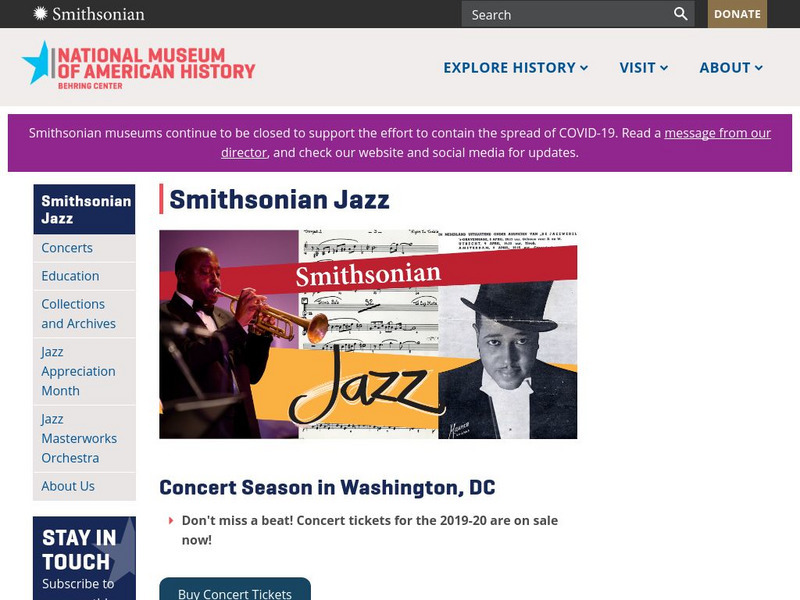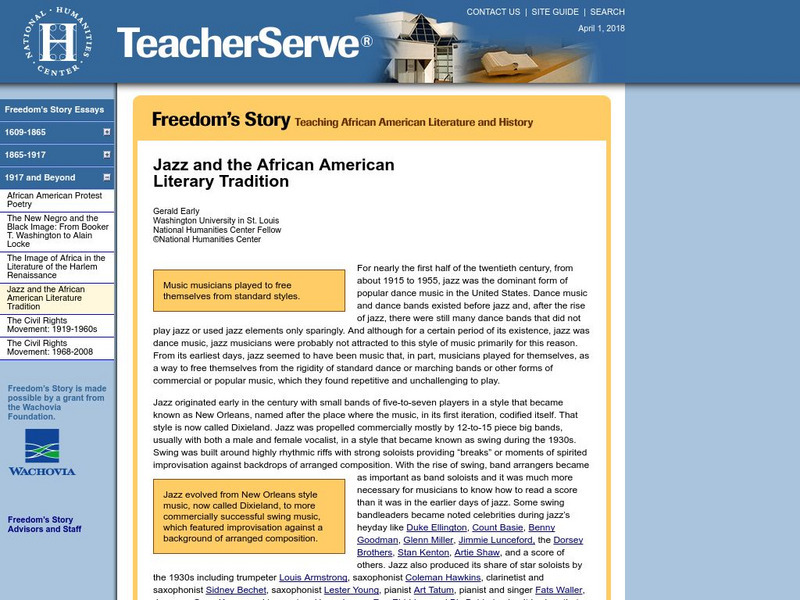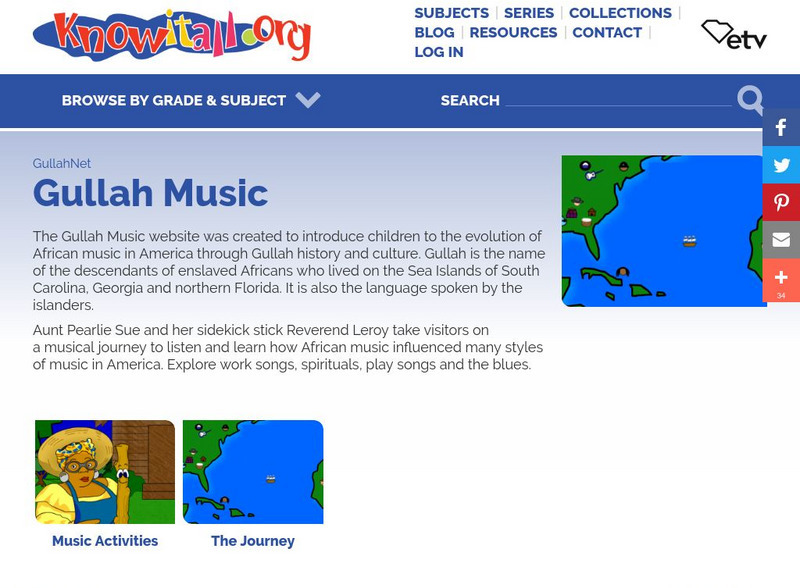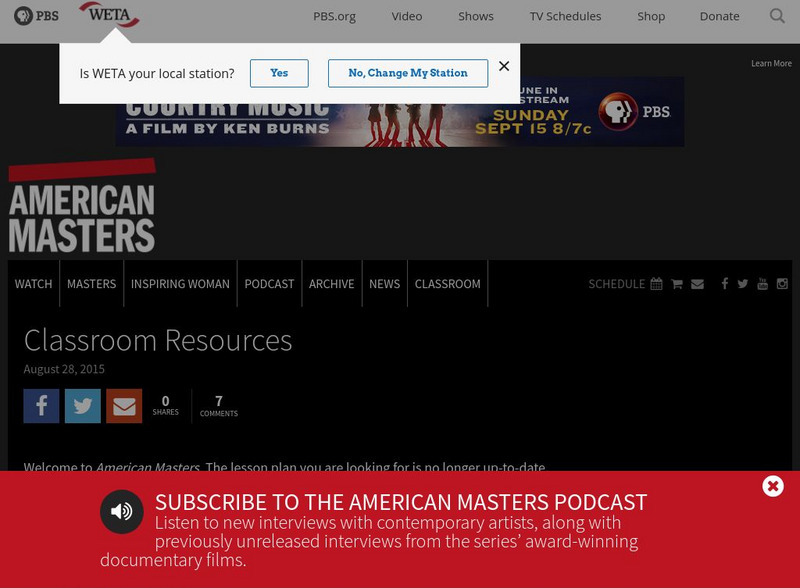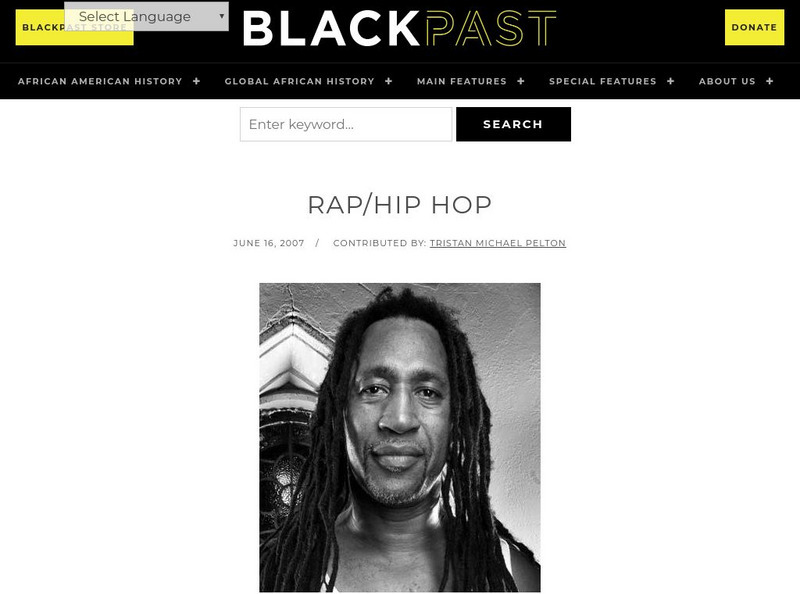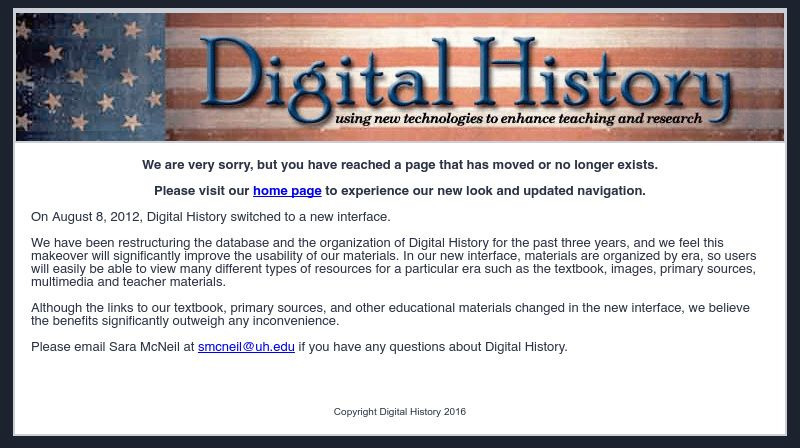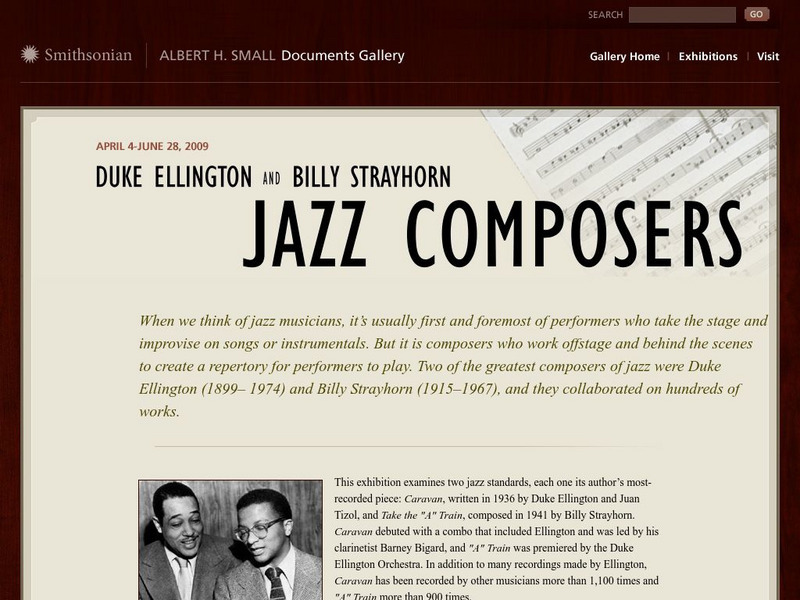PBS
Pbs: American Roots Music
If teaching a unit about the history of popular music in America, this PBS web site supporting their four-part TV broadcast of a few years ago would make a great resource. Includes lesson plans and oral histories too.
York University
York University: African Canadian Online: Music
African-Canadian music encompasses the West Indies, Africa, the United States, South American and the Maritimes. This excellent reference resource provides information about the many kinds of music and the talented individuals who make it.
Library of Congress
Loc: The African American Odyssey: A Quest for Full Citizenship
Online exhibit from the Library of Congress explores black America's quest for equality from the early national period through the twentieth century. Exhibit contains a wealth of items including books, government documents, manuscripts,...
Smithsonian Institution
National Museum of American History: Smithsonian Jazz
Smithsonian Jazz is home to several online exhibits, an interactive "Duke Ellington class," recordings, publications, oral histories, and similar resources.
National Humanities Center
National Humanities Center: Teacher Serve: Jazz and the African American Literary Tradition
Article explores the influence of jazz on African American literature from the early history of jazz, noted jazz artists, the black-white tensions within jazz, to its literary influence after World War II.
Smithsonian Institution
National Portrait Gallery: Black List Project: Charley Pride
A biography of famed country music singer Charley Pride, one of few African Americans in the industry to both perform at and be inducted to the Grand Ole Opry.
South Carolina Educational Television
Etv: Gullah Net: Gullah Music
Explore aspects of African music as reflected in the songs and music of slaves who lived in coastal South Carolina.
Georgia Humanities Council and the University of Georgia Press.
New Georgia Encyclopedia: Blues Music: Overview
Overview and definition of blues music that developed in the southern United States in the early nineteenth century. Performers from Georgia include Ray Charles, Ma Rainey, Little Richard, and the Allman Brothers.
PBS
Pbs American Masters: Scientific American: Following Muddy's Trail
This site has a lesson plan on Muddy Waters focused on the American Masters documentary about him. Parallels the Great Migration with the growth of the blues music movement in America. Click on Muddy's name to access a detailed biography...
John F. Kennedy Center
The Kennedy Center: Blues Journey
Trace the history of the blues in America through the play, Blues Journey, based on the book by Walter Dean Myers. You can see video clips of the stage play, listen to blues radio shows, and learn about different types of blues music.
Black Past
Black Past: Rap/hip Hop
This encyclopedia entry gives a brief history of rap and hip hop and the influences of the music on modern culture.
Pennsylvania Historical and Museum Comission
Explore Pa History: Billy Eckstine
Learn of the historical contributions of jazz musician, band leader, and Pennsylvania native, Billy Eckstine in this succinct biography.
Encyclopedia Britannica
Encyclopedia Britannica: Guide to Black History: Taj Mahal
This entry from Encyclopedia Brittanica's Guide to Black History features Taj Mahal, an American singer, guitarist, songwriter, and one of the pioneers of what came to be called world music. He combined blues and other African-American...
PBS
Pbs: The Story of Jazz
A supplement to a ten-part film series on jazz, this resource describes the growth and development of jazz music from the gritty streets of New Orleans to the Lincoln Gardens on Chicago's south side, where Louis Armstrong first won fame,...
Varsity Tutors
Varsity Tutors: Web English Teacher: Langston Hughes
This resource focuses on the works of famous African-American author, Langston Hughes.
Digital History
Digital History: Slave Culture
Find out about the contributions African slaves and African American slaves made to not only their culture, but American culture in general. See what words have African roots, how African culture influenced food and music, and how there...
Digital History
Digital History:the Great Migration
The Great Migration for African Americans began during World War I as blacks left the segregated south to find jobs in the north. Read about how segregation followed them into their northern neighborhoods. See also how the Harlem...
Khan Academy
Khan Academy: American Culture in the 1920s
The First World War had a crippling effect on any notions of positivity in the artists, writers, and intellectuals of that time and they became known as the Lost Generation. This page discusses this group of people, the emergence of jazz...
Smithsonian Institution
National Museum of American History: Documents Gallery: Ellington and Strayhorn
Duke Ellington and Billy Strayhorn, two of the greatest jazz composers, collaborated on hundreds of works. As you explore this exhibition, you will have an opportunity to view original music scores, listen to audio clips, and view videos...
Rock and Roll Hall of Fame
Rock & Roll Hall of Fame: Understanding Poetry of Maya Angelou Through Rap Lyric
By examining the lives and lyrics of popular, positive black female rappers such as Queen Latifah and Lauryn Hill, students can trace a direct line back to the inspirational writer and poet, Maya Angelou. Rap lyrics will help explicate...
PBS
Pbs: The Blues Classroom
Access the educational resources developed by a Seattle-based museum to supplement the PBS documentary series "The Blues." Includes background essays on the blues; biographies, video clips, and sound clips from the series; a blues...
Smithsonian Institution
National Museum of American History: Smithsonian Jazz: Duke Ellington
This site provides audio clips, photos, and biographical information of this legendary composer and performer. A match game teaches and tests your knowledge of Ellington.
The Washington Post
The Washington Post: "The History of Jazz," Chapter 1
This site offers the first chapter of Ted Gioia's book, "The History of Jazz." This chapter focuses on the prehistory of jazz, including the Africanization of American music, country blues and classic blues, and Scott Joplin and Ragtime.
A&E Television
History.com: Why the Watershed 1969 Harlem Cultural Festival Was Overshadowed for 50 Years
The 1969 Harlem Cultural Festival brought over 300,000 people to Harlem's 20-acre Mount Morris Park from June 29 to August 24, 1969 against a backdrop of enormous political, cultural and social change in the United States. The summer...





